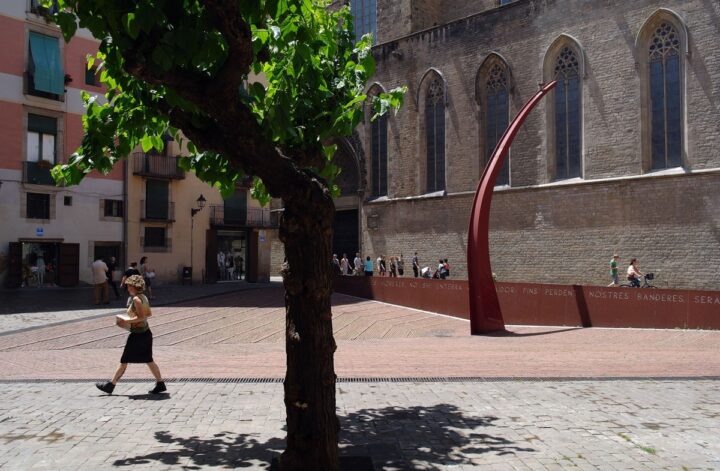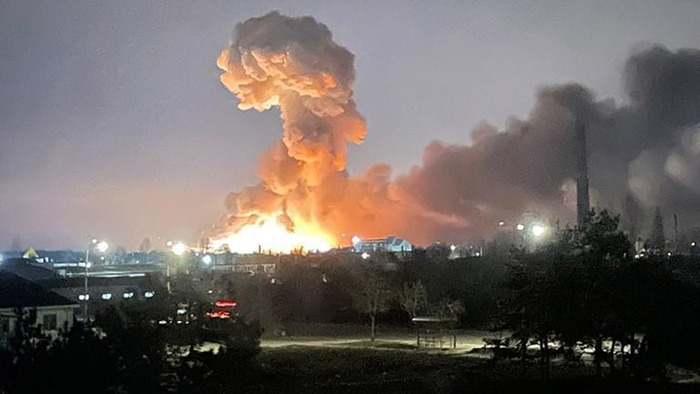“Al Fossar de les Moreres no s’hi enterra cap traïdor; fins perdent nostres banderes serà l’urna de l’honor” (“In the graveyard of the mulberry trees no traitor shall be buried; even if our flags are lost, it will be the urn of honour”), by Federic Soler ‘Pitarra’.
Many years ago, I read this line engraved on a vermillion wall next to the basilica of Santa Maria del Mar in Barcelona. I was moved to tears.
I realized then how often arrogant governments have labelled as terrorists, traitors of the homeland, villains, honorable people who were later cleared of all their presumed misdeeds when facts emerged and a new interpretation of history took over. This attitude does not concern only celebrated patriots and history; it relates to personal situations as well.
Notwithstanding its unpretentiousness, the discreet inscription conveys plenty of symbols that deeply touched my heart.
Pitarra’s delicately refined lines are devoid of any bombastic claims such as those we read on several ostentatious memorials dedicated to some questionable fatherland’s glory. In those mass graves I just see human beings who unwillingly lost their lives in the senseless attempt to kill other human beings.
The caption restores honor to people who have been humiliated for centuries even after they were slain. Rather than a monument it is a ‘nonument’. Oblivious tourists stroll past the grave without even noticing it.
Every time I come to Barcelona, I pay a visit to the ‘Fossar’.
Specifically, the hollow (‘fossar’) commemorates those Catalan soldiers who fought the Spanish king to defend the independence of Catalunya in 1714. It wasn’t until 1989 that Pasqual Maragall, at the time Mayor of Barcelona, was eventually able to dedicate the square to those who until then had been disparaged.
What does this story teach us? Why does it inspire me? There are plenty of characters in history who, before being hailed as heroes, were persecuted. The list of alleged terrorists sentenced to death by those in power is very long and it includes eminent leaders such as George Washington, Arafat, Garibaldi, Mandela and many more.
One day also Saddam Hussein and Muhammar Qaddafi, viciously overthrown and brutally murdered on what were proven to be pretexts, might (or may not, of course) be cherished again in their homeland. As a matter of fact, Saddam and Qaddafi are still highly respected by most of the peoples that they ruled because they maintained peace and internal balance.
We can employ the same argument in the personal sphere. How often has someone not been understood and contemptuously belittled? How often were they slandered, disarmed while unable to react; how often did they see friends, even family members, believe the lies and shun them like a leper?
The Catalan patriots’ case warns the noble and the honest to suspend any judgement until they know the facts, and even then, more often than not, to keep silent anyway.
Both in individual cases and in politics, the miserable are quick to be outraged and those in power take advantage of their shallow emotions.
This doesn’t mean we should shy away from taking a stand, but rather that we should respect our possible opponent even when waging war on them. It means being civil enough to see and recognize the ‘other’ who might be different but is nonetheless worthy of respect and being fought with dignity.
Nietzsche argued that ‘he who fights the dragons turns into a dragon himself’: I will never approve of such an immoral utterance. Civility entails fighting the dragons while preserving our humanity.
Barcelona’s ‘Fossar de les moreres’ reminds us how we may change our minds about situations and people after having humiliated them. Let us not do it again.



